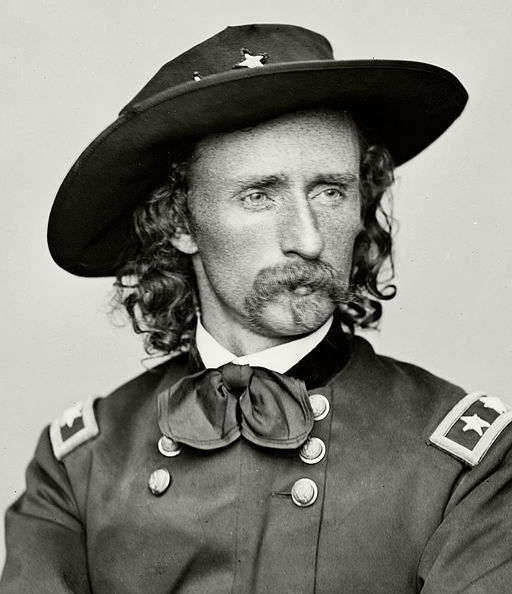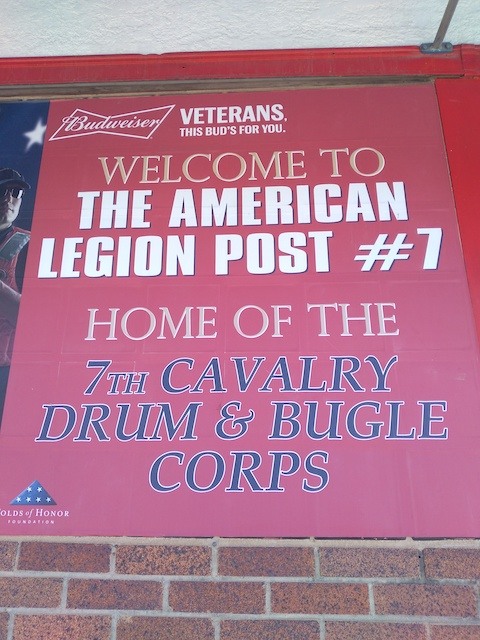More than 3,000 participants attend Minneapolis event
‘Garryowen’ retired by some after Custer’s use as death song
A century-old promise to silence a song tied to the massacre of Native Americans appears to have been forgotten.

Lt. Col. George Armstrong Custer’s band played “Garryowen” for the last time in 1876 on the way to the Battle of the Little Big Horn. Among the 7thCavalry, 34 Irish soldiers lost their lives there, a painful memory to the Irish as well. Public Domain/Wikicommons
This past week, finishing up the wilderness camp where I cook provided a sad experience. After a week in the wilderness, the guests and crew wind up at the Bear Lodge, a resort in the middle of the Big Horns providing overdue hot showers and a lavish banquet and entertainment. Entertainment often includes the Sheridan American Legion 7th Cavalry Drum and Bugle Corps, very well received. Lively Irish tunes motivate tapping feet, clapping, laughter and even jigging.
Sheridan, Wyo., where I now live, is home to American Legion Post 7. It’s dedicated to Lt. Col. George Armstrong Custer and the 7th Calvary. The post’s magnificent Drum and Bugle Corps performs in many venues around the country, an excellent and enthusiastic group of musicians, specializing in Irish music, wrapped around the romance of Custer.
As a half-Irish person, their music appeals to me. Ironically, I often frequent Post 7 for their old country dances, thus personally acquainted with many members of the marching band. George, almost 80 is the band conductor and also a very good dancer, sometimes my pardner, a kind man. They are good people, but perhaps not fully acquainted with the history of the song “Garryowen.”

Thus, their performance at the most recent banquet proved upsetting to some us when they presented a rousing rendition of “Garryowen”, Custer’s signature battle song. That would be me, Northern Cheyenne, Jake Buckles, Oglala Lakota, and Kim Lebeau, Crow and Lakota. I stood up. Jake looked at me as did Kim. Of common mind about that song, we walked out, very noticeable. To our credit, we came back and behaved when the strains of “Garryowen” disappeared.
After the evening festivities concluded, the boss inquired about our behavior. I explained it to him. “We did not request that song,” he said. Of course, also a kind man, he simply did not know how it would affect us. Same can be said of many Cheyenne, not given opportunity to know our own history.
Irish Central Newsletters provides an account of how Custer abused the beloved old Irish drinking song. The headline reads: “Irish song ‘Garryowen’ played before Custer’s massacres now banned.” For the Cheyenne and Sioux, the drinking song with a marching cadence “is akin to what ‘Deutschland Uber Alles’ is to the Jews, a hated reminder of an evil past,” according to the newsletter author.
Of common mind about that song, we walked out, very noticeable. To our credit, we came back and behaved when the strains of “Garryowen” disappeared.
CLara Caufield
Garryowen, the marching song of the 7th Cavalry led by Lt. Col. George Armstrong Custer, the infamous man who massacred Native American villages in the then all-out campaign to rid the plains of the “redskins”. The tune was played quite deliberately right before attacks, signaling impending death to the tribes, especially to the most vulnerable.
For example, it was played before the Massacre of Washita in Oklahoma, 1868. Custer was assigned by General Phil Sheridan, a son of Irish immigrants. Sheridan, known to be merciless, encouraged similar behavior from his officers. At Washita, more than 700 cavalrymen killed upwards of 100 Cheyenne, mostly elders, women and children. The entire village was destroyed. That massacre forever scars the collective tribal memory of the Cheyenne and Sioux. We are all related.
Custer’s band played “Garryowen” for the last time in 1876 on the way to the Battle of the Little Big Horn. Among the 7th Cavalry, 34 Irish soldiers lost their lives there, a painful memory to the Irish as well.
In 1968, the 100th commemoration of Washita, members of the 7th from Ireland and Cheyenne descendants joined in reconciliation ceremony. Seventh Calvary commander Eric Gault was gifted with a blanket by the Cheyenne. In turn, he handed his Garryowen badge. “We are sorry that Garryown was played on that day 100 years ago. It will never again by played against your people,” said Gault.
It’s been more than a half century since Gault made that promise. I guess the 7th Calvary bugle corps in Sheridan, Wyo. have not yet received the message.

I like the sound and energy of “Garryowen”. What I do not like is how Custer used it and what he made it stand for: death for our people. The death song will forever haunt the memory of the Cheyenne. Apparently, to the Sheridan American Legion 7thCavalry Drum and Bugle Corps, it is still just a good ole Irish tune associated with Custer.
Yet, we, the descendants of those who were murdered to the strains of “Garryowen,” shouldn’t have sit at a modern-day banquet and be subjected to it. It was not the intent of Jake Buckles, Kim LeBeau or myself to offend the good people of the Sheridan bugle corps.
Our only intent was to keep from crying in public.
Clara Caufield
Correspondent
Location: Busby, Montana
Spoken Languages: English, German, Northern Cheyenne
Topic Expertise: Plains Indians; Cowboys; Horses; Political Commentary
See the journalist pageO'Dowd, Niall. "Irish Song 'Garryowen' Played Before Custer's Native American Massacres Is Banned." Irish Central, 2017, updated 15 Aug. 2022.
© Buffalo's Fire. All rights reserved.
This article is not included in our Story Share & Care selection.The content may only be reproduced with permission from the Indigenous Media Freedom Alliance. Please see our content sharing guidelines.
This article was produced for ProPublica’s Local Reporting Network in partnership with Honolulu Civil Beat
ProPublica
Inspired by her grandparents, Tonah Fishinghawk-Chavez proves that caring for the community is an action, not just a word
Police and family looking for Angel Mendez and Zayne LaFountain







